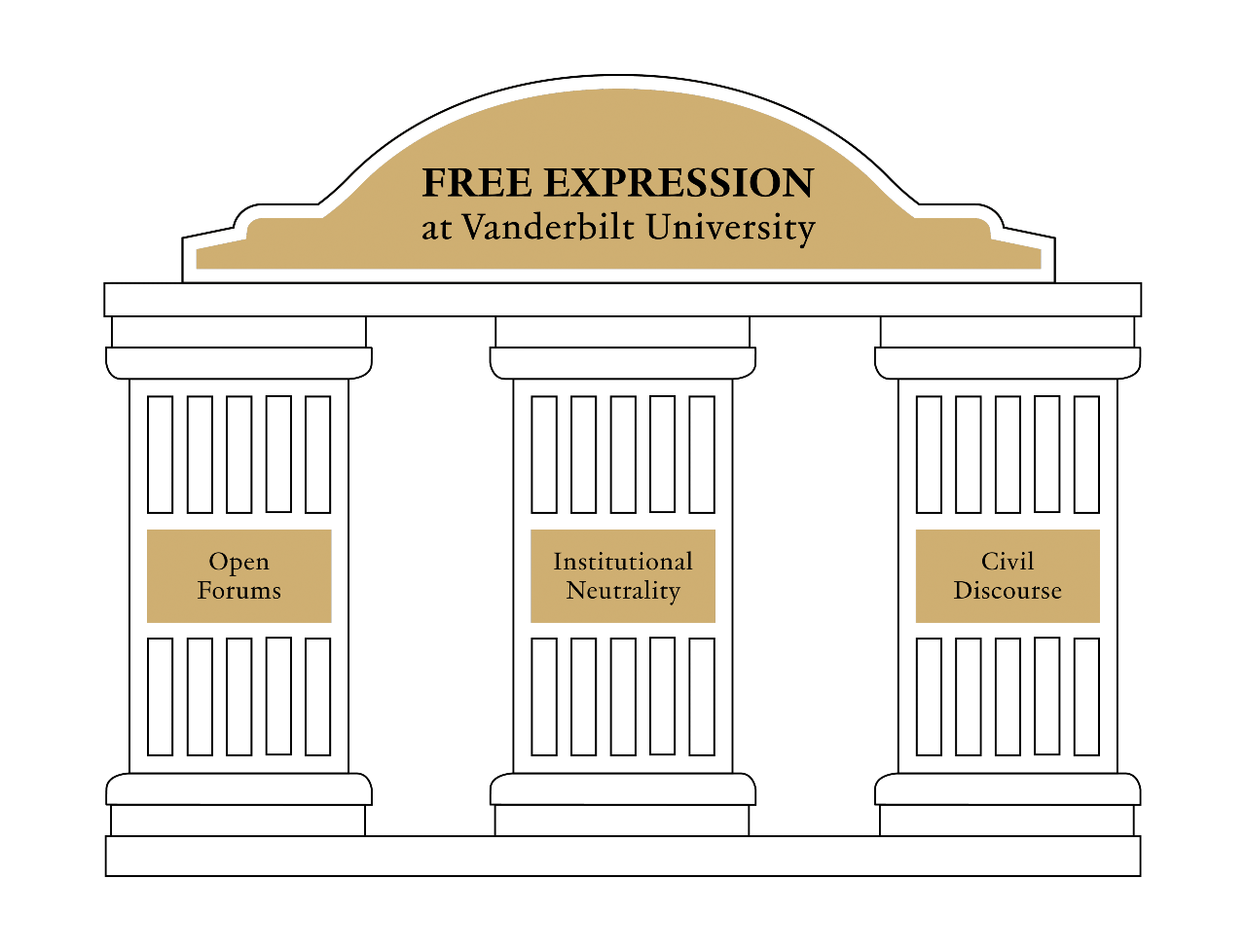Our Commitment
Free expression is essential to a university's very purpose. Transformative education, pathbreaking research and the timeless search for truth all require a wide variety of viewpoints, the uninhibited exchange of ideas, the persistent challenging of conventional wisdom, and courageous and vigorous debate.
A university that dutifully transmits canonical knowledge, but is not at the same time alive with diverse perspectives, probing critique and the practice of query and argument, is a university in name only.
At Vanderbilt, we have a long tradition of free expression. At a moment when free expression on college campuses and in American civic life is at risk, we are proud to affirm our commitment to this core principle.
A university's obligation is not to protect students from ideas, but rather to expose them to ideas, and to help make them capable of handling and, hopefully, having ideas.
Our Approach
Vanderbilt's approach to free expression rests on three pillars: open forums, institutional neutrality and civil discourse.

Recent News
The academy might be the last, best place where American citizens can learn to coexist, converse and cooperate with people whose views differ from their own.
